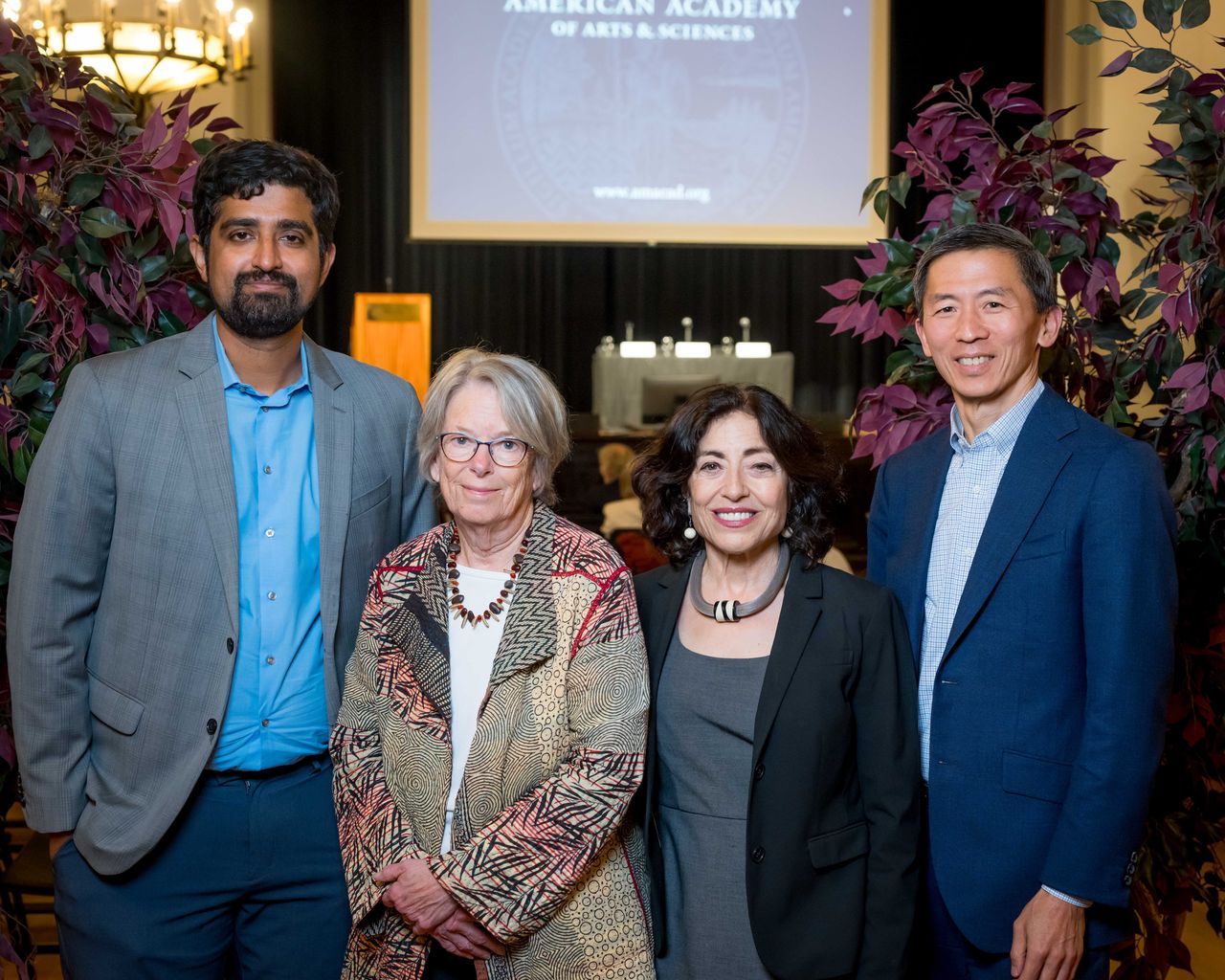The Berkeley Local Committee of the American Academy of Arts and Sciences hosted an interdisciplinary and timely discussion about creative, economic, and legal rooted in the proliferation of generative AI technology.
The expert panelists were Pamela Samuelson, professor at Berkeley School of Law; Jennifer Chayes, dean of the College of Computing, Data Science, and Society; and Abhishek Nagaraj, associate professor at Haas School of Business. Goodwin Liu, a Supreme Court of California associate justice and board chair of the American Academy of Arts and Sciences, opened the event and welcomed the audience.
A video of the event is available for viewing online.
An article about the event, issued by the UC Berkeley College of Computing, Data Science, and Society, presents three substantive areas of exploration:
- A game-changing technology
- “This really is a game-changing technology,” Chayes said. “I deeply believe that this is the most empowering technology in our lifetimes. It can be used for harm, and so we have to mitigate those harms, but it can also be used for good in leveling the playing field and providing access to benefits.”
- “This really is a game-changing technology,” Chayes said. “I deeply believe that this is the most empowering technology in our lifetimes. It can be used for harm, and so we have to mitigate those harms, but it can also be used for good in leveling the playing field and providing access to benefits.”
- Legal considerations: fair use and transformative use
- “According to Samuelson, plaintiffs are asserting infringement on the grounds that developers make copies of copyrighted works when training the foundation models that underpin GenAI systems. The type of copyrighted content varies across lawsuits, ranging from books, song lyrics, recorded music and news stories to visual art, photography and movie characters.”
- “Samuelson suggests the application of fair use exceptions is what’s really being debated by legal scholars and judges considering these U.S. copyright law cases. ‘Fair use is definitely a limit that provides breathing room for next generation creation, and fair use has also become a very important way for copyright to adapt in a time of rapid technological change,’ she said.”
- Economic impacts of AI
- “‘A main debate in economics is what we call the amount of augmentation versus automation,’ said Nagaraj. He described how the field of animation moved from the creation of many duplicative hand drawings to its increased use of digital automation during the late 1980s and 1990s.”
The complete article is online.
